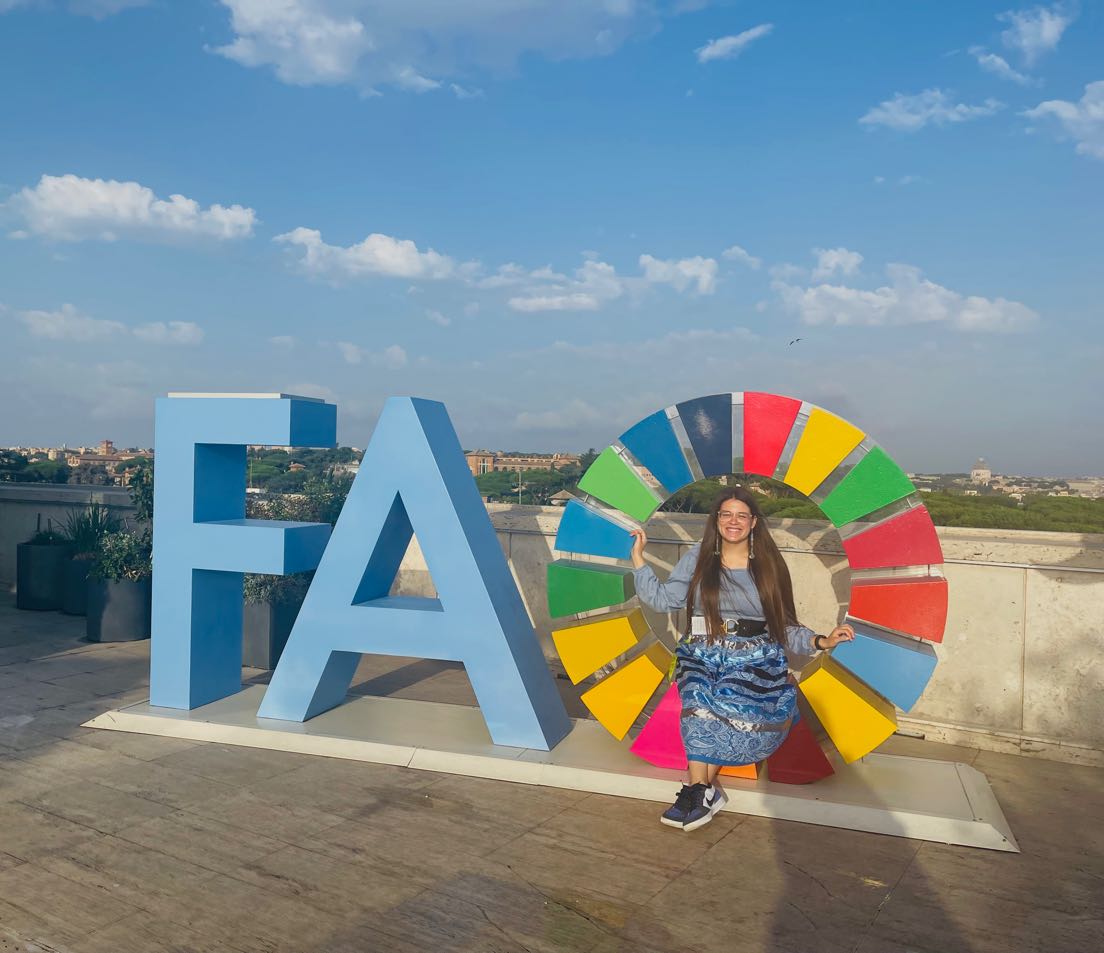When senior Zoe Fess heard about the experience past delegates had at the first session of UNGIYF (United Nations Global Indigenous Youth Forum), she knew she wanted to apply to become a delegate herself as a member of the Ho-chunk peoples and a strong advocate for Indigenous food sovereignty.
“I found out about it last November through a partnership opportunity with the FAO (Food and Agriculture Organization) and then I applied in May or June of this year, and I heard that I was accepted on Labor Day weekend,” Fess said.
First held in 2021, the UNGIYF is a forum hosted at the FAO Rome headquarters that allows Indigenous youth to discuss issues, share their voices and create proposals concerning Indigenous people of their own. According to Fess, around 185 delegates attended from all seven socio-cultural regions of the world.
This year’s session focused heavily on food sovereignty and climate action, which is of interest to Fess as an environmental studies and stability major. She and other delegates wrote four manifestos, policy recommendations and a declaration to be presented to the UN (United Nations).
“We largely got together and discussed things like food insecurity and sovereignty, farming, fishing, Indigenous rights within the food system. And then, because the World Food Forum was going on inside of FAO, a lot of us flowed in and out [of both conferences],” Fess said. “I attended a few of the policy drafting sessions for healthy meals in schools, in elementary through high school within the U.S. I attended one of those sessions and we talked about policies.”
Food systems were an important concern for the delegates who face injustices due to their indigenous heritage. At the conference, Fess among others could be given the chance to voice these issues and potentially make substantial changes as they shared their concerns.
“It is really important because that highlights all of the different issues that are going on within Indigenous spaces when it comes to food systems. Whether that’s over-farming, reducing land access, inefficient water supplies for growing … laws [are] put in place so that hunting cannot happen,” Fess said. “So, we got together and we talked about a lot of different things, but everything connected back to the food.”
With a drive to ensure traditional food and land are accessible in Michigan, Fess hopes to further her involvement with the issues after attending the 2023 conference. She believes that the forum allowed Indigenous people to raise their voices, which were not previously heard.
“Honestly, I want to do a lot within food sovereignty, especially food sovereignty within the Great Lakes. It’s really, really important to me that all of these different nations can have access to their foods, their traditional foods, their traditional food systems, water and land access,” said Fess. “So, getting to work in these spaces and bring my experiences to the table makes it not only meaningful, but it shows that people are listening to our voices now.”
After a successful trip to Italy and a deepened passion for making a difference, Fess could share her experience with others and spread her concerns outside of the conference. The 2023 UNGIYF brought her and other delegates together as they strive to enact change.
“I think [my favorite part] was getting to hang out with people from all over the world, and people from the U.S. that I didn’t know,” said Fess. “Knowing that all of these different Indigenous youth are working in sustainable food … and now I know them, and we can hit the ground running.”








